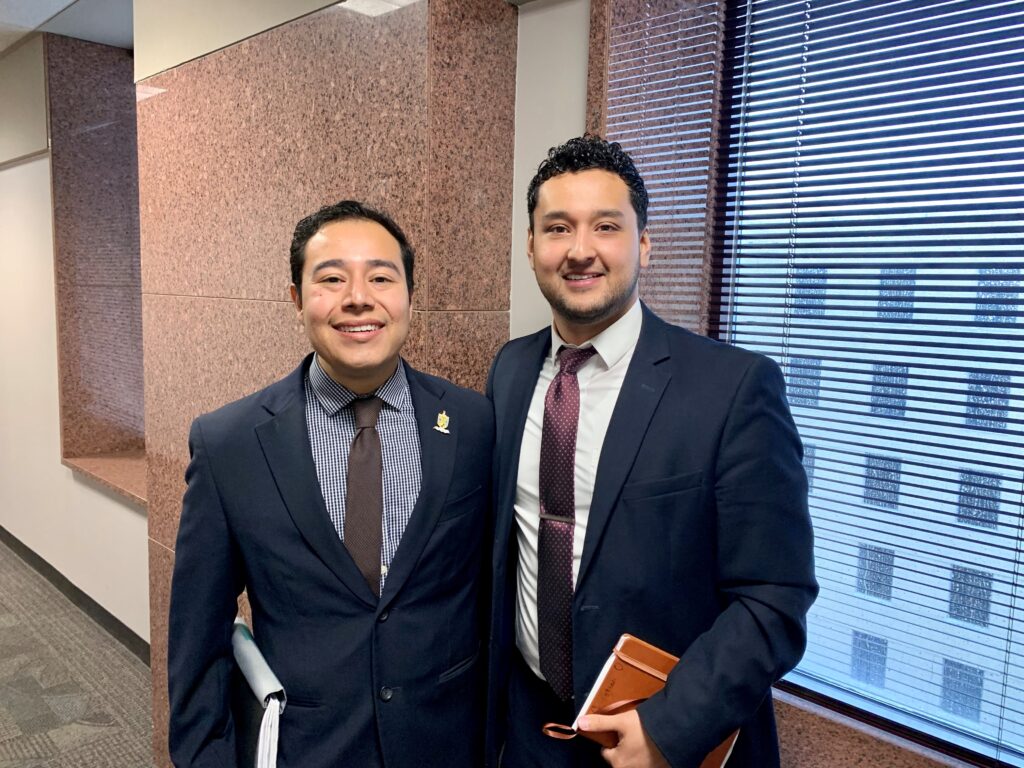
ATLANTA – A push to let undocumented students pay in-state tuition for publicly funded colleges in Georgia hit a roadblock Wednesday as House lawmakers shelved a hoped-for bill in the legislative session.
In a hearing Wednesday afternoon, House Higher Education Committee Chairman Chuck Martin declined to call a vote on a measure that would extend in-state tuition to undocumented Georgia residents protected from deportation under the federal Deferred Action for Childhood Arrivals (DACA) policy.
The decision effectively ended a bid this year by DACA advocates to ease college tuition hurdles ahead of a ruling from the U.S. Supreme Court in the coming months that could decide the residency fate of DACA recipients in the U.S.
Martin, R-Alpharetta, said he wanted to wait until after the court’s ruling before tampering with Georgia law on undocumented students.
“You’re here now. You’re just as much a Georgia guy as I am and I mean that,” Martin said. “That said, the folks in Washington need to get together and figure this out.”
The measure up for consideration, House Bill 997, called for granting in-state tuition to non-U.S. citizens like DACA recipients to most public colleges so long as they had lived in the country since age 12, were under 30 years old, had lived in Georgia for four years before enrolling in college and obtained a high school or GED diploma here.
It would have applied for most of the 26 schools in the University System of Georgia except for the University of Georgia, Georgia Tech and Georgia State University, which do not grant admissions to DACA recipients.
Sponsored by Rep. Kasey Carpenter, the bill was one of a handful filed in the House this year but was viewed by DACA advocates as having the best shot at moving forward. Carpenter, R-Dalton, said DACA recipients in his heavily Latino district and elsewhere already working toward college degrees ought to get a fairer shake financially before federal policy on the issue is settled.
“Sometimes, the federal government doesn’t take care of business and leaves us with no avenue,” Carpenter said.
DACA recipients, called “Dreamers”, were brought to the U.S. as children with their parents and possess temporary work authorization permits but are not legal permanent residents. There were about 21,000 Dreamers in Georgia as of June 2019, according to the nonprofit Migration Policy Institute.
Students who are not U.S. citizens have been largely barred from qualifying for in-state tuition in Georgia since 2008 — though state law does give universities leeway to allow in-state tuition for green-card holders, refugees and asylum seekers. In-state tuition tends to be much lower than out-of-state rates.
Many DACA recipients who grew up in Georgia attend state colleges but must pay out-of-state tuition, which can be triple the cost of in-state tuition. Christian Olvera said he pays about $6,000 per semester currently to attend Dalton State College as a DACA recipient, three times more than the roughly $2,000 he said he would for in-state tuition.
Olvera, whose parents migrated from Mexico, said he was buoyed by the fact House lawmakers gave Carpenter’s bill a hearing instead of leaving it to languish in the legislative dustbin. But the largely symbolic victory was bittersweet.
“Eyes on the prize,” Olvera said after the hearing. “It’s only right to do that for the sacrifices of the people who came before us.”